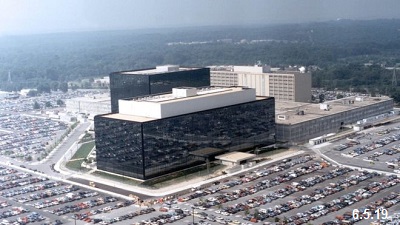|
VLC Media Player 3.0.7 was released on Friday and contained the most security updates ever in one release of the program. The president of the VideoLan non-profit organization states that this was due to their inclusion in the EU-FOSSA bug bounty program. Last year, the European Commission announced that they were expanding their Free and Open Source Software Audit (FOSSA) project to support bug bounty programs for free and open source programs that they use. As VLC Media Player is one of the products used by the EU Commission, it was added to a bug bounty program at HackerOne where they are sponsored by EU-FOSSA. Jean-Baptiste Kempf, the President of VideoLan and one of the lead developers of the VLC Media Player, says that VLC 3.0.7 has the most security fixes than any other version of their program. "We just released VLC 3.0.7, a minor update of VLC branch 3.0.x," Kempf stated in a blog post. "This release is a bit special because it has more security issues fixed than any other version of VLC." As VideoLan is a non-profit organization offering free software, being able to afford a bug bounty program that can attract security experts is not an easy task. Being sponsored, though, by EU-FOSSA who will pay up to €60,000 in bounties for reported VLC vulnerabilities appears to have created a much greater for security researchers to analyze the program. We have more posted on OUR FORUM. One would be forgiven for thinking Microsoft just announced a $6000 computer and $1000 stand, as the company’s share price has surged 7% in the last 5 sessions according to Bloomberg, hitting its higher ever valuation in intra-day trades, and closing at above a $1 trillion valuation for the second time ever. Over the same period, Alphabet fell 3.5% and Facebook lost 2.9%. While Apple rose 9%, this was 18.2% below their Oct. 3, 2018, record high. Microsoft is now worth more than $100 billion more than their nearest rival. As has become common, the results are speculated to be due to Microsoft’s limited involvement in the current hostile regulatory environment surrounding large tech companies and also their heavy involvement with enterprise services, which are less liable to be affected by economic downturns. “Management noted Microsoft is better positioned than ever to maintain wallet share of customers through an economic downturn, given the broader budget exposure beyond IT,” Piper Jaffray analyst Alex J. Zukin wrote in a June 5 note. “However, they indicated they were not seeing any signs of an economic slowdown nor any weakness in the economy.” Currently, 36 analysts have a buy rating for Microsoft with an average price target of $143 (7% up from the current close of $131.40), while one rate as hold and 2 recommend selling. “We continue to have a ‘buy it and forget it’ mentality on the stock right now as the company appears to be in midst of secular fundamental growth,” Zukin wrote. Continue following this by visiting OUR FORUM on a regular basis. US officials and Microsoft executives say older versions of the programs may be vulnerable to malware. In the advisory, NSA officials said a flaw known as "BlueKeep" exists in past editions of Microsoft Windows. Last week Microsoft warned that "some older versions of Windows" could be vulnerable to cyber-attacks. "All customers on affected operating systems [Windows 7 and earlier] should update as soon as possible," said Microsoft. US officials said the "BlueKeep" flaw could leave computers vulnerable to infection by viruses through automated attacks or by the downloading of malicious attachments. They said ransomware can often be installed quickly, holding files hostage and demanding payment from individuals. The vulnerability in the older versions of Microsoft Windows wrote the International Computer Science Institute's Nicholas Weaver, means that bad actors could "gain complete control of the remote system". Updating systems, as the Microsoft executives explained, helps to protect computer users from these kinds of cyber-attacks. Recently a ransomware attack on the city of Baltimore disrupted municipal services, knocking city workers offline and making it harder for people to pay their traffic tickets and water bills. The New York Times has reported that the NSA knew about the system flaw, EternalBlue, but kept it secret for years. EternalBlue has been implicated in a range of cyber-attacks over the past three years, including the WannaCry assault that disrupted the UK's NHS. A senior NSA adviser, Rob Joyce, tweeted on his own account that some computer users could face a "significant risk" because of the vulnerabilities in the older versions of Microsoft Windows, but that they would be protected by updates. Read more of this warning on OUR FORUM. |
Latest Articles
|


